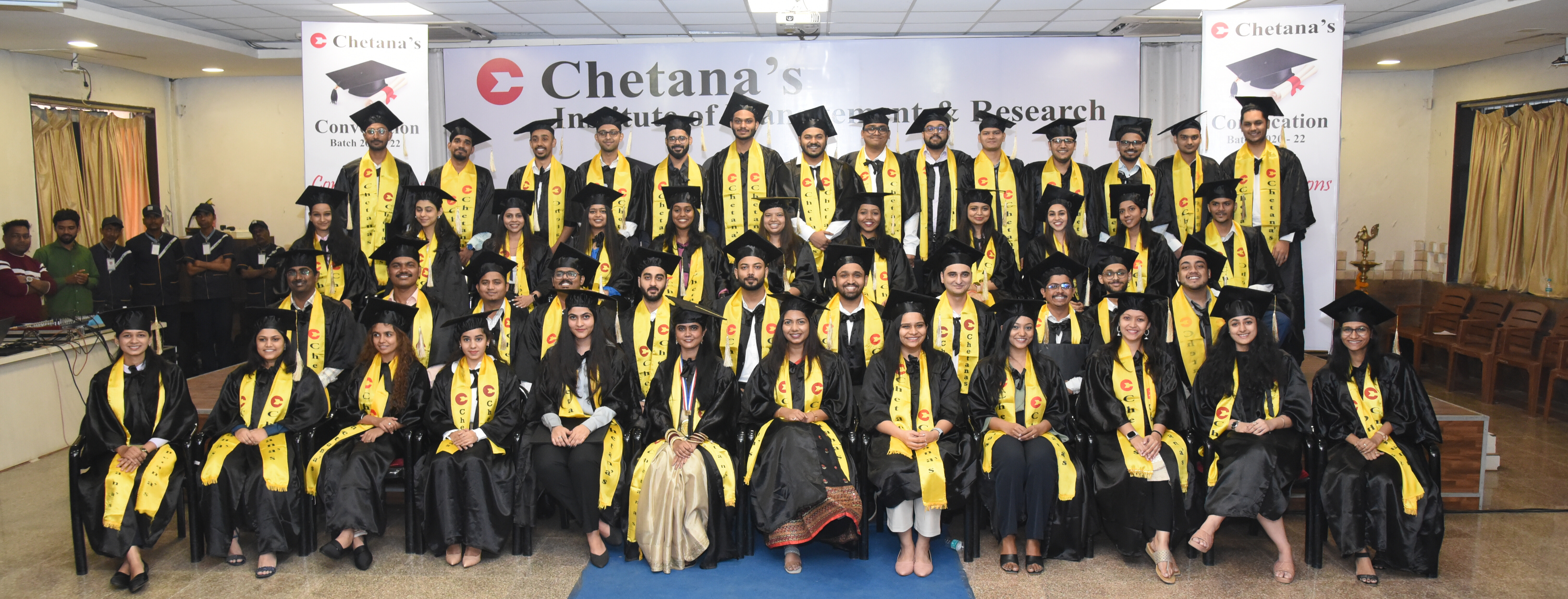

The Post-Graduate Diploma in Management (PGDM) program is AICTE approved and structured to provide a perfect combination of in-depth conceptual understanding and practical insights to tackle real-world business issues. The program comprises of 4 semesters spanning over 2 academic years, with specializations in Marketing, Finance, Human Resource Management, Operations, and Systems. The present in-take of the program is 180 seats.
Program Objective:The overarching objective of the program is to develop effective managers and leaders who shall contribute to business and society. The hands-on learning experience and practical classroom instructions provide the students with the necessary knowledge, skills and attitude to solve real problems. The program aims to hone skills like critical thinking, team building, and effective communication in students. In addition, the program also focuses on developing an entrepreneurial mindset, and the ability to think and act creatively and proactively.
The programme is
To develop students as management professionals by honing their critical- thinking, analytical & problem-solving skills for effective decision-making.
To enable students to adapt to changes in the business environment both locally and globally.
To sensitize students to socio-cultural & economic aspects impacting the current and future requirements of organizations and society.
To develop ethical business leaders and entrepreneurs.
| PEOs\Mission | Develop Managerial Skills with focus on Communication, Critical
Thinking and
Problem
Solving. (M1) |
Impart the required knowledge to students to make them agile
professionals.
(M2) |
Equip students with the ability to understand economic and
socio-cultural
systems. (M3) |
Provide high- quality management education through Contemporary
Pedagogy.
(M4) |
Develop leaders focusing on excellence; excellence includes
ethics. (M5) |
| PEO 1: To develop students as management professionals by honing their critical- thinking, analytical & problem-solving skills for effective decision-making. | H3 | H3 | H3 | H3 | M2 |
| PEO 2:To enable students to adapt to changes in the business environment both locally and globally. | M2 | M2 | H3 | H3 | M2 |
| PEO 3:To sensitize students to socio-cultural & economic aspects impacting the current and future requirements of organizations and society. | M2 | H3 | H3 | M2 | H3 |
| PEO 4:To develop ethical business leaders and entrepreneurs. | M2 | M2 | M2 | M2 | H3 |
Apply knowledge of management theories and practices to solve business problems
Foster Analytical and critical thinking abilities for data-based decision making
Ability to develop value-based leadership ability
Ability to understand, analyze and communicate global, economic, legal and ethical aspects of business.
Ability to lead themselves and others in the achievement of organizational goals, contributing effectively to a team environment.
The program pedagogy offers scope for rich experiential learning through:
Due importance is given to both classroom and non-classroom learning in the form of industry interaction, internships, live projects in order to enable self-development of the student with the requisite skills, knowledge, and ethics. These tools enable to integrate perspectives across functional areas, which in turn lead to students becoming proficient in not only their specialisation but also other areas catering to holistic business decision making. The choice of pedagogic methods is based on the premise that the learning experience must not only enhance the student’s practical capabilities but also instil social responsiveness. The evaluation system comprises quizzes, assignments, case analysis, project work, group exercises, field-work, internships, mid-term assessments and comprehensive examinations. Evaluation is continuous and spread throughout the course delivery.
Chetana's Knowledge Board Competition (CKBC)- Sectoral Analysis
In an effort to ignite the 'research' spark, this forum is provided to the first-year PGDM students by the library committee. The event combines the use of research, communication and managerial skills and motivates the learners to be informed of their surroundings. The rationale behind this innovative and effective pedagogy was to provide students with a platform to explore various sectors with a holistic approach and to hone the spirit of teamwork and inculcate leadership skills amongst them

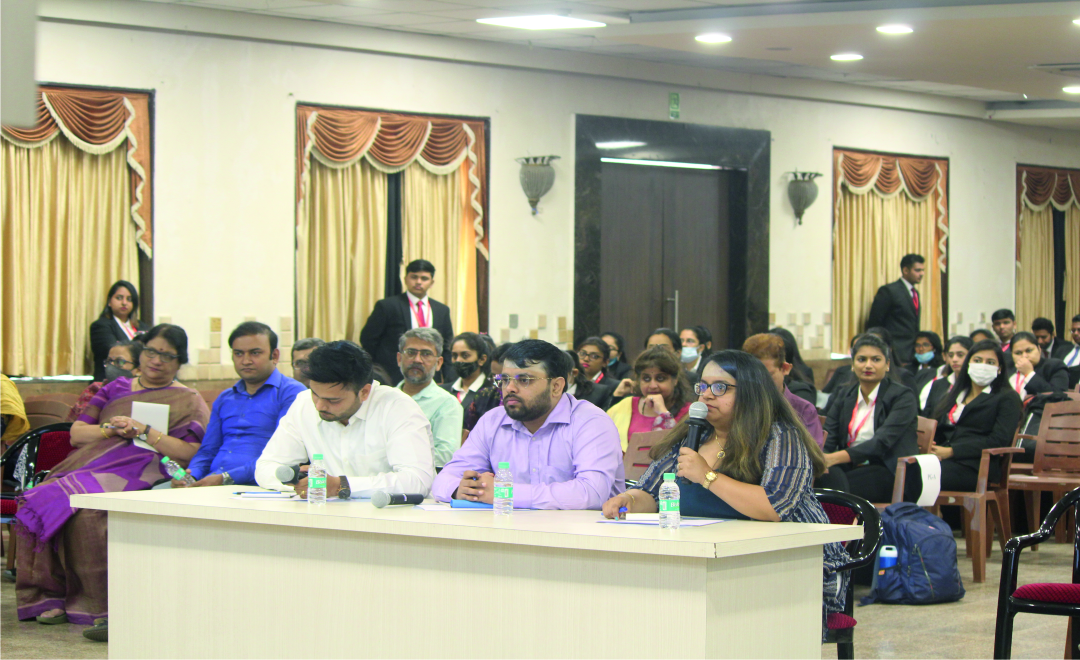
Application of Information System in Business
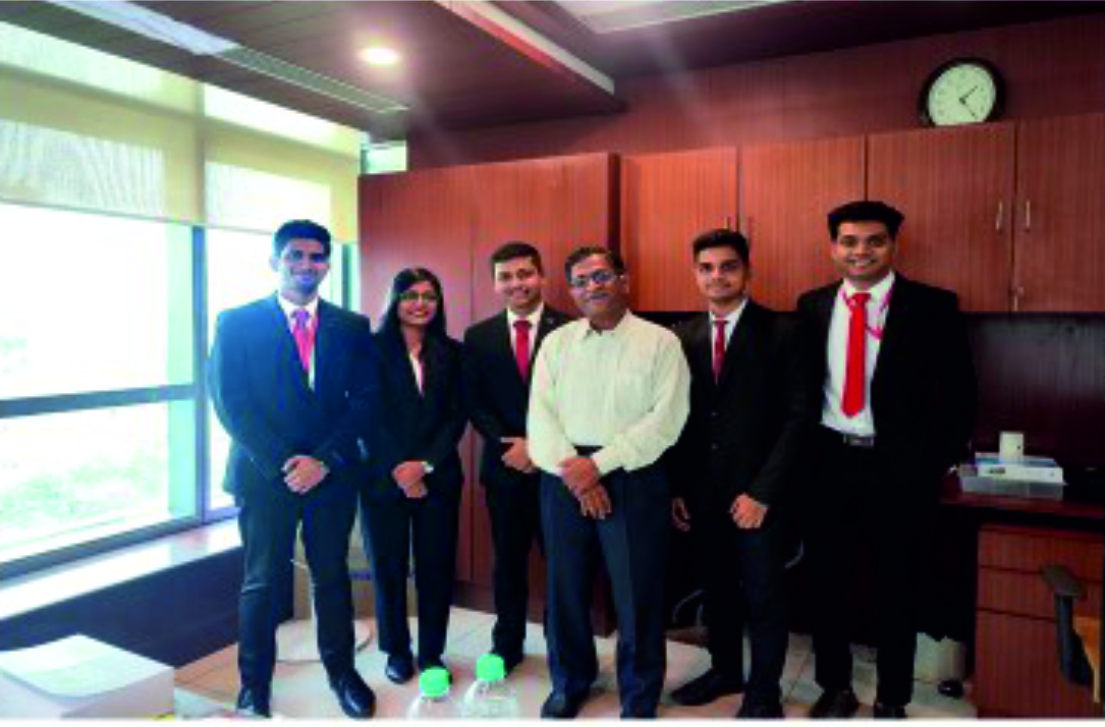
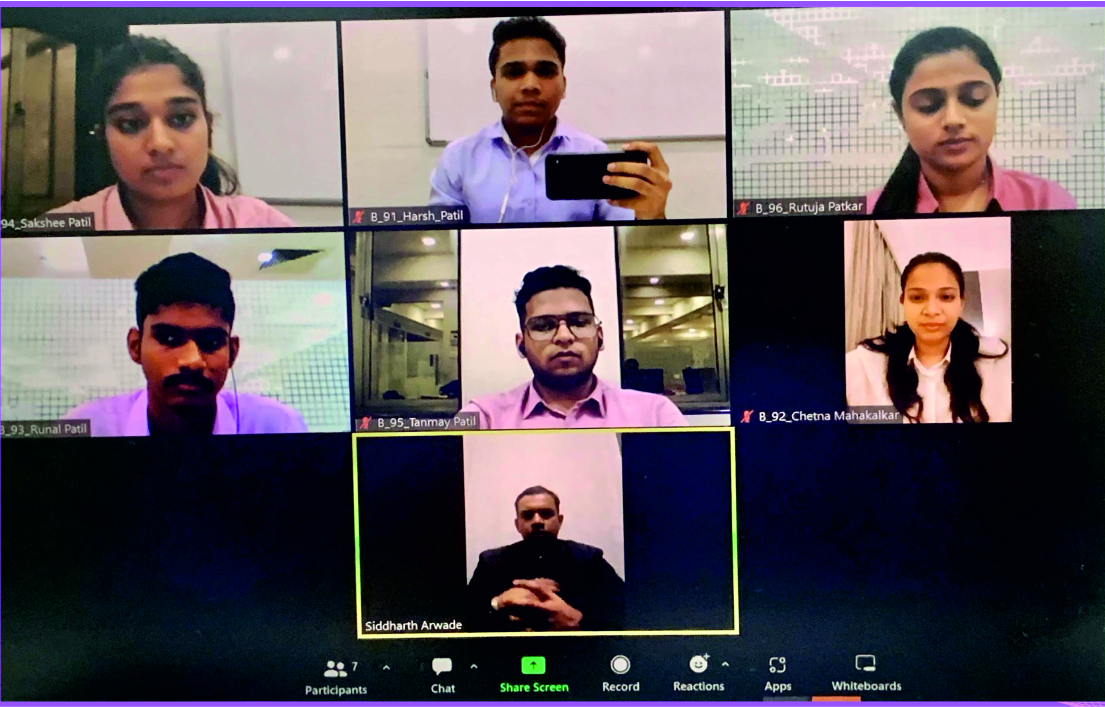
Innovation Lab
Innovation Lab wasn't an assignment to our students but the journey to reach towards excellence. During this project each division was transformed into a mock organization.
Students get the opportunity to handle the leadership roles of various departments to test their skills. Innovative organizational presentation was a process for learning the different functions of the various departments such as
The Marketing Lab
The Marketing Lab has been introduced under the PGDM Marketing Program. The students are given sales assignments to enable them to understand the sales process. This hands-on learning experience is provided through tie-ups with various industries. The sales assignment is spread over two semesters, linked to courses such as Selling & Negotiation Skills in Semester I and Sales & Distribution Management in Semester II. The students get brief from the industry on the products and services offered, after which they help the business in collecting data on the prospective clients for the business. The students develop sales pitch for the products and are further engaged in converting the cold leads into warm leads. The lab enables individual learning and peer learning and helps develop the spirit of team work.
Mercatus Club
Mercatus Club, the Marketing Club at CIMR is a student-centred body and a platform where students get an opportunity to blend marketing theories with application. It keeps the students abreast with the latest happenings in the realm of marketing domain. Mercatus organizes various inter and intra-college competitions and activities. The club facilitates interaction with the alumni and industry experts by organizing various Workshops, Master Class and Guest Lectures. The Club also has a quarterly newsletter called 'M-Quotient' which provides marketing exposure to all marketing and non-marketing students in form or articles, columns, discussions and news-bytes.
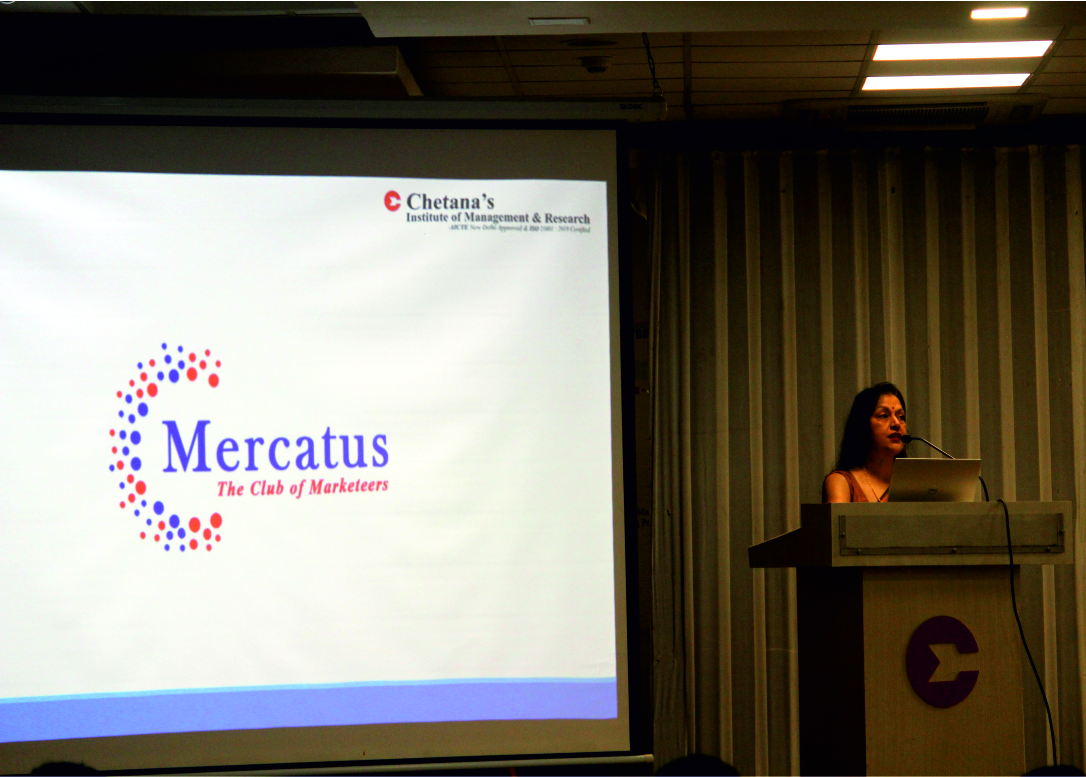
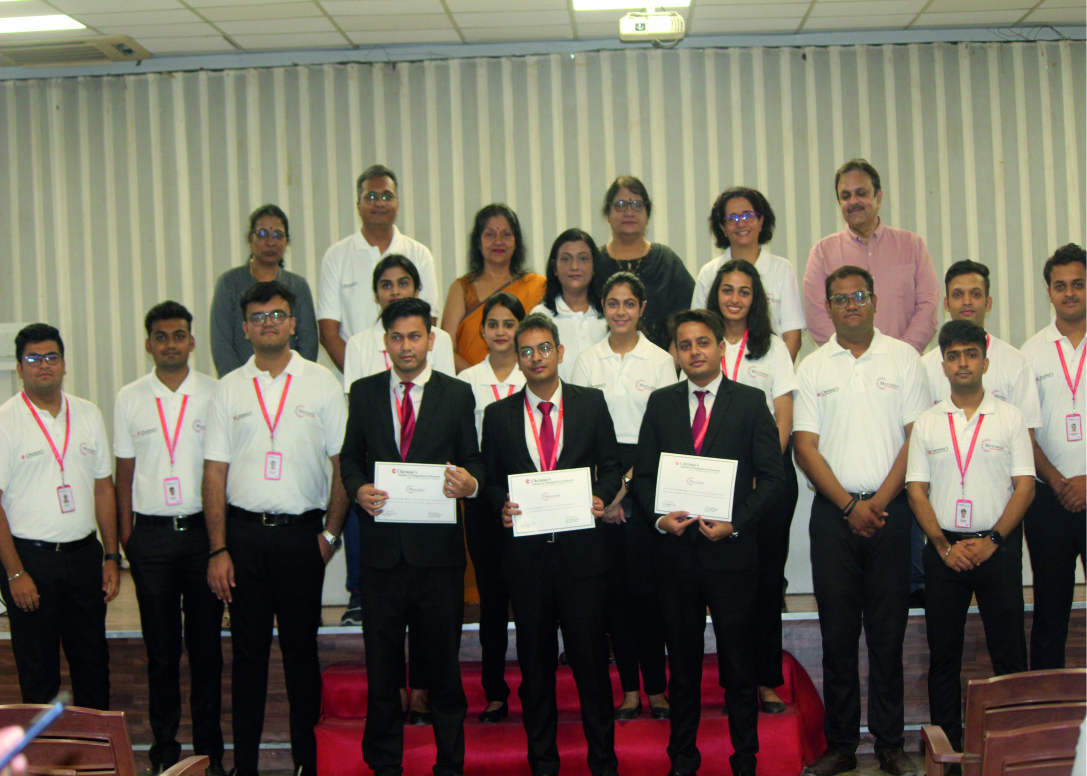


All Round Personality Development Workshop
Happiness is all about Wellness
The significance of happiness and its relationship with harmony is tremendous. The personality development workshop focusses on co-curricular activities of the students thus imparting holistic development. There are various components in the workshop, like Communication Lab, Art Appreciation, Foreign Language, Dance to your Happiness, Cross- Cultural protocols , Lateral Thinking and Emotional Wellness.
Financial Times- Past, Present And Future
Innovative pedagogy for students to understand and contemplate the past present and future of financial system and policies in India.
Finance specialization students set up teams and are given a topic to discuss. The topics are based on past present and future of Indian financial system. Students can discuss the topics at large in the form of group discussions / moderator and Panel discussions / expert opinions style. Students are expected to have an in-depth study of the topic, so that they can critically analyze the topics. The various styles of discussions will encourage the students for more extempore discussions on financial topics.
Innovative Pedagogy to learn about Financial Instruments for Investments.
NIVESH MELA
Nivesh Mela is an innovative pedagogy used to create awareness about different Financial products and Instruments available for Investments.
Students are made to work in teams and have been allotted one type of Financial product. They are supposed to know its historical risks and returns, the current trends and the companies offering such products. All teams make a kiosk or a stall where students from other specialization and other faculty come to see the mela. Each person in the audience is given Rs. 2crore virtual money to invest. The teams are supposed to convince the audience and get the maximum revenue by selling their products.
Students not only learn about the products but also understand consumer psychology and behavioral finance. Prizes at the end keep the competitive spirits high.
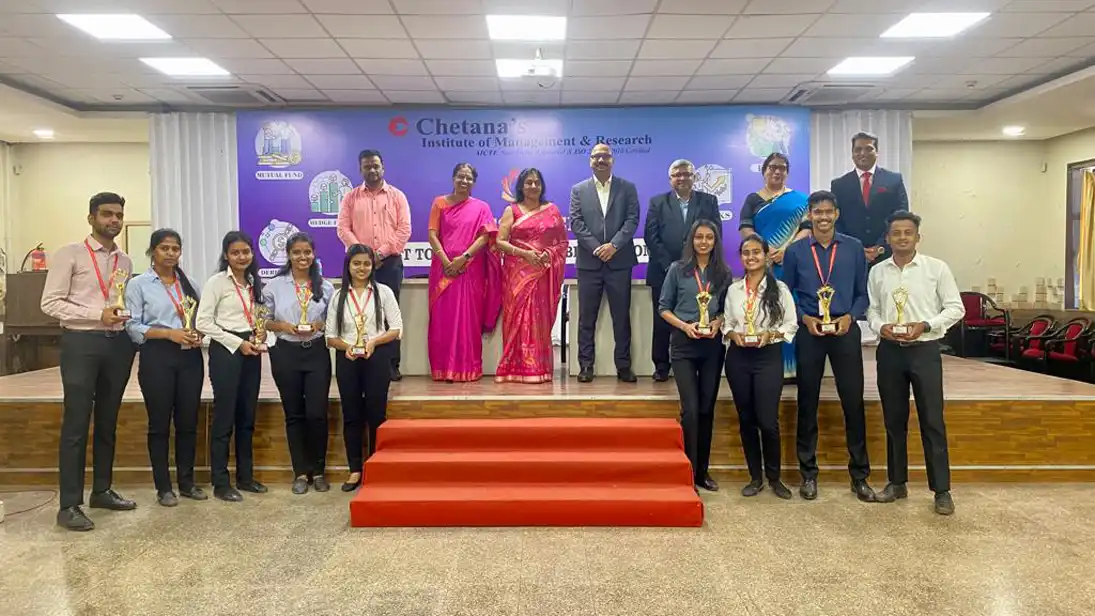
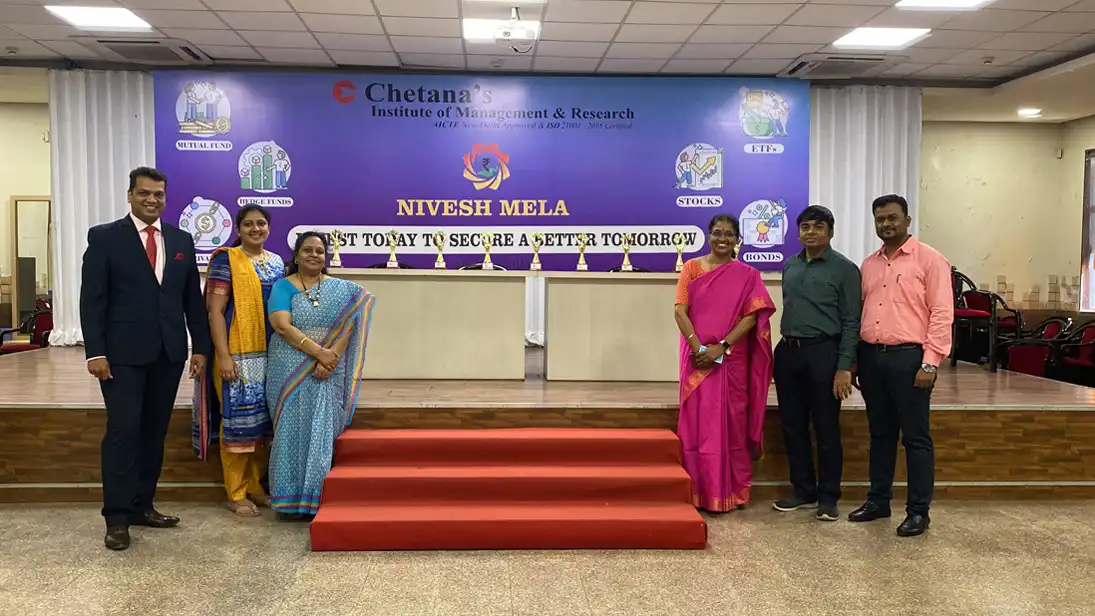
The first year curriculum aims at strengthening fundamentals in all areas of functional management and provides a holistic perspective of general management. Students undertake an 8-10 week summer internship with our industry partners at the end of the second semester. At the beginning of the second year, the students can select their areas of specializations offered such as; Marketing, Finance, Human Resources, Operations, and Systems. The third and fourth semesters provide inputs in the chosen area of specialisation and are customised to the career focus of students and the industry requirements. The PGDM Subjects include:
| Semester 1 | Semester 2 |
|
1. Financial Accounting 2. Information Systems for Business 3. Managerial Economics 4. Marketing Management -1 5. Operations and Supply Chain Management 6. Organizational Behaviour 7. Quantitative Techniques 8. Managerial Communication 9. Innovation Management 10. Selling and Negotiation Skills |
1. Analysis of Financial Statements 2. Financial Management 3. Human Resource Management 4. Marketing Management - 2 5. Managing Business Research 6. Operations Research 7. Entrepreneurship Management 8. ESG 9. Economic Environment of Business 10. Communication Lab 11. Specialization Course - Application and Practices |
| Semester 3 | |
|
Core courses 1. Project Management 2. Strategic Management 3. Summer Internship Project Marketing Specialization 1. Consumer & Industrial Buying Behaviour 2. Managing Products & Brands 3. Marketing Research and Analytics 4. Services Marketing 5. Sales and Distribution Management Electives ( Any 2) 6.a. Marketing of Banking and Financial Services 6.b. Integrated Marketing Communications 6.c. Rural Marketing 6.d. Digital Marketing Finance Specialization 1. Corporate Valuations and Business restructuring 2. Investment analysis and wealth management 3. Derivatives and Risk Management 4. International Finance 5. Banking and Financial Service Institutions Electives ( Any 2) 6.a. Marketing of Banking and Financial Services 6.b. Research Analyst 6.c. Fixed Income securities 6.d. Financial Analytics |
HR Specialization 1. Competency Based Performance Management 2. Compensation and Benefits 3. H R Analytics 4. Organizational Structure, theories and design 5. Training and Development 6.a. Industrial Relations and Labour Laws 6.b. Talent Acquisition Operations Specialization 1. Service Operations Management 2. Operations Analytics 3. Materials Management 4. International Logistics 5. Supply Chain Management 6.a. Material Resource Planning and Control 6.b. Business Process Re-engineering Systems Specialization 1. Database Management Systems 2. Enterprise Management Systems 3. Big data and Business Analytics 4. Software engineering 5. Artificial Intelligence and Machine Learning 6.a. Knowledge Management 6.b. Managing Technology Business |
| Semester 4 | |
|
1. International Business Marketing Specialization 2.a. Trends in Marketing Finance Specialization 2.b. Private Equity and Venture Capital HR Specialization 2.c. Organisational Development Operations Specialization 2.d. Operations Application & Cases Systems Specialization 2.e. System Applications & Case Study 3. Swayam Course - 1 4. Swayam Course - 2 5. Industry Oriented Project * Please note that the Course Structure is subject to revision |
|
In addition to courses of a conventional management education program, the institute offers the following value addition courses to enable holistic development of the students:
The students of Chetana’s Institutes of Management and Research added a dash of colour this Diwali to the lives of more than 1400 street children. Over 250 students, in association with Fulora Foundation organized a drawing competition for the street children of Mumbai. The objective behind the activity was to draw the children who live in the fringes into the mainstream.
The students visited over 75 locations across Mumbai and distributed drawing sheets and crayons to children ranging from ages 2 to 15. The wonderful imagination and talent of the children was captured in the beautiful images painted by the children. The drawings made by the children were judged by an esteemed panel comprising of veteran artists and the Dean of JJ School of Art. The best drawings would be auctioned and the proceeds generated would go towards funding the education of the underprivileged children.
For the management students, the entire activity was an exercise in resource planning, manpower management and coordination. The outcome was that while they made a difference in the children’s lives, they made a difference in their own lives.